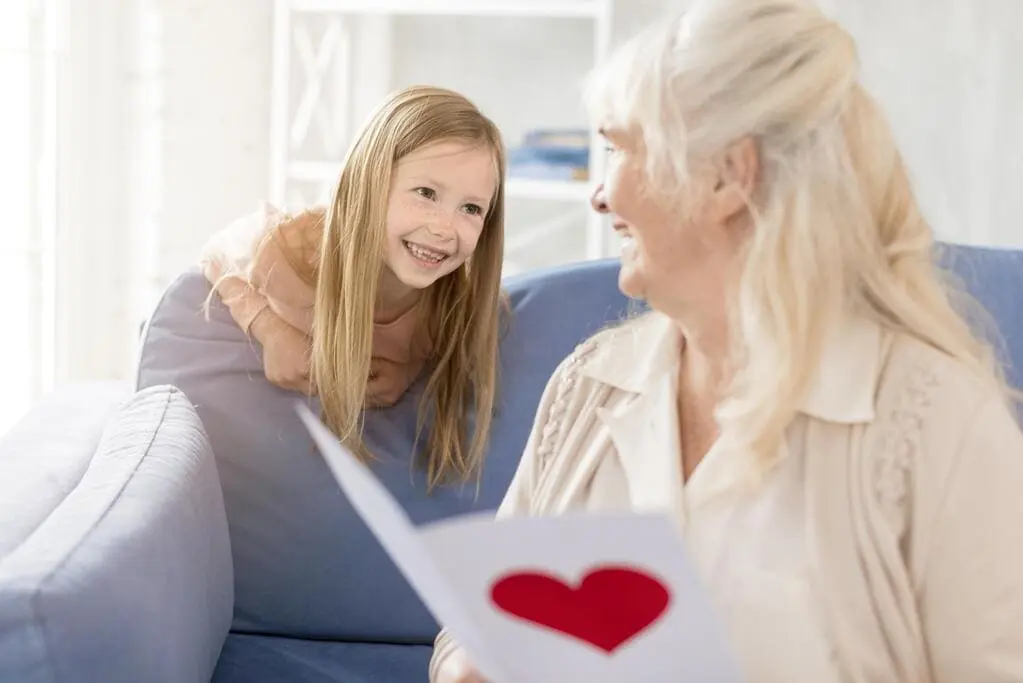Community psychiatric nurses (CPNs) support people in gaining control over their lives, choices, and futures. CPNs work towards ensuring that people receive the right care at the right time, enabling a smoother transition and reducing the risk of crisis and readmission. By collaborating with multidisciplinary teams, CPNs facilitate integration into community life while enhancing people’s overall well-being and independence.
What is a Community Psychiatric Nurse?
A community psychiatric nurse is a healthcare professional dedicated to supporting people with mental health needs in their communities. They are committed to creating strong and genuine connections that instil trust, hope and a sense of safety.
Community psychiatric nurses work closely with the care recipient and their family to provide holistic care, guidance, and therapy to improve mental health and overall well-being.
Community psychiatric nursing involves collaboration with other mental health professionals and support systems to ensure that people receive comprehensive care that fits their unique needs, helping them to live fulfilling and stable lives within their communities.
The Role of a Community Psychiatric Nurse
Community psychiatric nurses play an essential role in guiding people through transitions from hospitals to community living. They bring a wealth of knowledge and compassion, supporting people to navigate these changes smoothly.
By working closely with other health and care professionals, CPNs provide personalised support that addresses each person’s unique needs. Their expertise in mental health and psychiatric care helps ensure a smooth shift from institutional to community-based settings, promoting stability and continuity of care.
The role of CPNs in community transitional services often involves:
- Spending time getting to know each person and understanding their mental health needs through thorough assessments and conversations.
- Forming genuine and strong relationships with people and their families based on respect, understanding and acceptance.
- Working with people to create personalised care plans that address their unique needs and goals while ensuring they are practical and achievable.
- Implementing proactive strategies to preventmental health crises and supporting people to navigate challenging moments.
- Providing counselling and emotional support to help people manage their mental health challenges and work towards improved outcomes.
- Educating people and their families about mental health, helping them understand their options and supporting their needs and rights.
- Coordinating care and ensuring that all the necessary services and resources are in place for people, keeping track of their progress and making adjustments as needed.
- Connecting withthe community to promote mental health awareness and work towards reducing stigma, helping to create a more supportive environment for everyone.
Responsibilities of CPNs in Community Transitional Services
Community psychiatric nurses are key figures in community transition services, offering invaluable support to people as they move from inpatient care back into their communities. Their work involves understanding each person’s unique needs, creating tailored care plans, and working closely with other professionals to provide ongoing mental health support. CPNs are here to guide and reassure people during this significant life change, helping them build resilience and confidence as they settle into their daily lives.
Discharge Planning
In order to create a comprehensive discharge plan, community psychiatric nurses get to know the person as a whole, including their preferences and dislikes.
Spending time with care recipients allows CPNs to identify people’s desires, dreams and aspirations for the future. This helps ensure that the person has a smooth and safe transition into the community, minimising the risk of distress and predicting any challenges that may arise during the process.
In-depth Assessments
In-depth assessments go beyond surface-level evaluations, offering a holistic and humanised review of each person’s mental health, social circumstances, and ongoing needs.
By taking the time to thoroughly understand each person, CPNs can identify potential challenges and strengths, which form the foundation for personalised care plans. This process ensures that the care provided is comprehensive and tailored to help the person thrive as they transition back into the community.
Building trust is central to conducting effective, in-depth assessments. CPNs approach each assessment with empathy and respect, creating an environment where people feel safe to share their thoughts, concerns, and aspirations.
This trust fosters open communication, allowing for a more accurate and complete understanding of each person’s needs. Through these detailed assessments, CPNs lay the groundwork for a support plan that genuinely reflects the person’s unique journey, promoting long-term well-being and independence.

Therapeutic Interventions
CPNs play a vital role in the lives of people with mental health needs by offering therapeutic interventions that make a real difference. At the heart of their work is the relationship they build with each person—providing a compassionate presence and a source of support during difficult times.
They meet people where they are, both physically and emotionally, helping them navigate the complexities of their mental health with empathy and understanding.
These interventions go beyond just managing symptoms; they’re about helping people rediscover their strength and resilience. CPNs work alongside people to find practical ways to cope, offering guidance, teaching new strategies for dealing with challenges, and being there in moments of crisis.
Their goal is to empower people to take control of their mental health, fostering independence and a sense of hope. By addressing the whole person, CPNs help create lasting positive change, allowing people to reconnect with their lives and communities.
Care Coordination
CPNs play a crucial role in care coordination by acting as the central link between different aspects of a person’s care. They work closely with various healthcare providers, social services, and families to ensure that all elements of support are aligned and responsive to the person’s needs.
By maintaining clear communication and advocating for the person’s best interests, CPNs help to create a seamless care experience where each professional and service contributes to to improved outcomes and well-being.
Their involvement in care coordination goes beyond just managing appointments and services; CPNs ensure that the person’s mental, emotional, and physical needs are addressed holistically. They provide continuity of care, monitor progress, and adjust plans as needed, all while keeping the person and their family informed and involved. Through their dedicated efforts, CPNs help people feel more supported, empowered, and confident in their journey toward better health and well-being.
Significance of CPNs in Community Mental Health Care
CPNs always place the person they serve at the centre of their care. They offer continuous encouragement and practical assistance and can connect people to additional mental health services within the community setting. Through their unwavering dedication, CPNs empower people to regain confidence, rebuild their lives, and seamlessly reintegrate into their communities, making the recovery journey both hopeful and attainable.
Promoting Recovery and Rehabilitation
CPNs play a crucial role in promoting recovery and rehabilitation within community mental health care. Their impact extends beyond clinical support—they foster trusting relationships that help people feel understood, valued, and accepted.
CPNs work with people to assess their needs, strengths, and challenges. Together, they set personalised goals for recovery and rehabilitation, focusing on improving daily living, managing symptoms, and enhancing quality of life.
CPNs recognise that with the right support, people can regain ownership of their lives, make their own decisions, and thrive within their communities.
Supporting Families and Caregivers
CPNs support families and caregivers by providing tailored guidance and emotional support. They offer practical advice on managing mental health challenges and connect families with resources to help them. By keeping lines of communication open and offering regular assistance, CPNs help families and caregivers feel more confident and capable in their roles. This support strengthens their bond and creates a more nurturing environment, which is essential for both their well-being and their loved ones.
Reducing Hospital Readmissions
The role of CPNs in community transition services is to ensure a safe and effective hospital-to-home transition by delivering continuous support and monitoring. They provide humanised support and assess ongoing progress, helping reduce the possibility of unnecessary hospital readmissions.
Together with a team of Positive Behaviour Support (PBS) specialists and speech and language therapists, our community psychiatric nurses aim to prevent circumstances that might lead to readmission. They work closely with people to develop care plans that include regular check-ins, meaningful therapeutic sessions, and coping strategies. This ongoing support paves the way for the incoming care provider to maintain stability while helping the person achieve improved well-being and positive outcomes.
Community Transitional Services With LD Network
At LD Network, delivering person-centred and integrated care is at the core of our mission. Using PBS strategies, our team effectively manages crises, facilitates smooth transitions, and works to prevent unnecessary hospital admissions and readmissions. Our internal multidisciplinary team of community psychiatric nurses, PBS specialists, and speech and language therapists are extensively trained in PRO-ACT SCIPr, a comprehensive method for supporting people with behaviours of concern.
Our support plans are meticulously crafted with proactive strategies aimed at reducing the need for reactive and restrictive interventions.
We collaborate closely with the Restraint Reduction Network to ensure the best outcomes for the people we serve, including:
- Conducting thorough functional and intentional assessments of behaviours of concern
- Developing evidence-based support strategies
- Providing regular, tailored training for support teams
- Designing personalised PBS plans
- Engaging in multidisciplinary and collaborative work
- Offering emotional support and fostering open communication with our support workers
- Providing occupational therapy and speech and language support
We are committed to the Transforming Care Programme, which is rooted in a human-rights-based approach to care. LD Network partners with healthcare providers to find solutions that enable people to receive high-quality, person-centred support within their homes and communities.
Part of Catalyst Care Group, a family of organisations, LD Network provides holistic support services, including community transition services and short-term and long-term support for people with mental health needs, autistic people, and people living with a learning disability.
For more information, reach out to us today!












